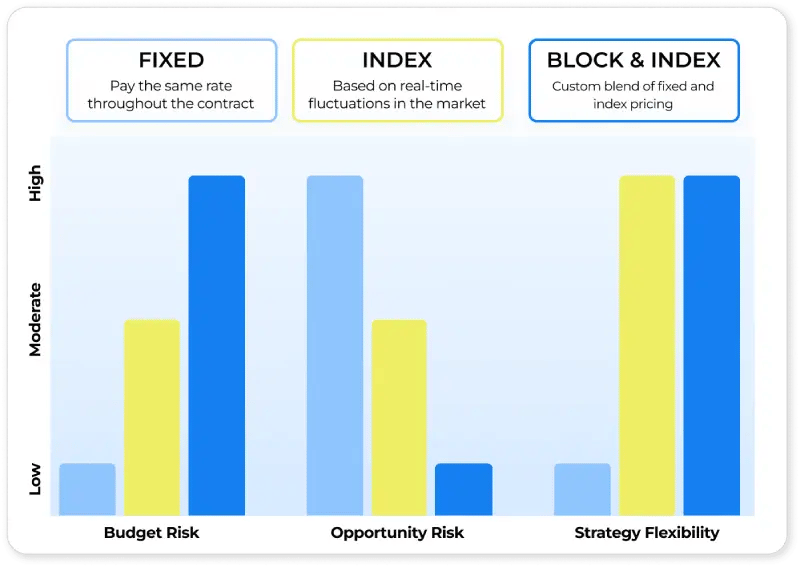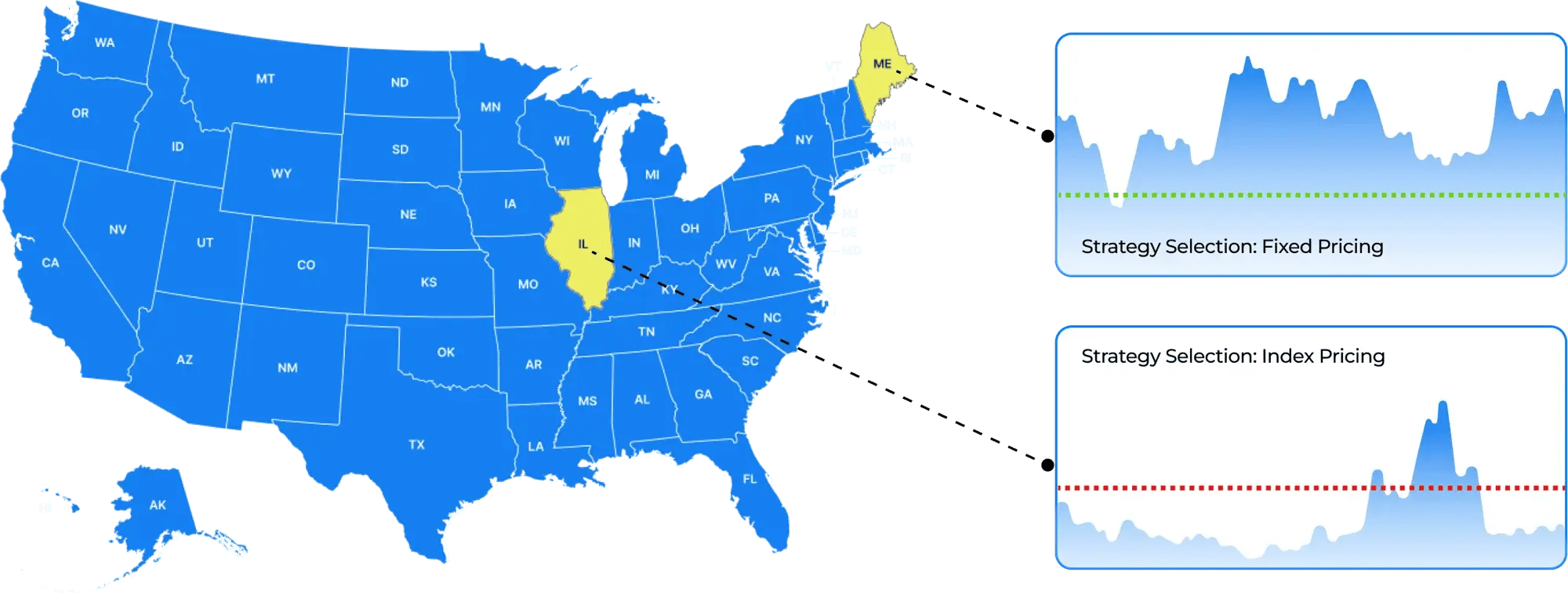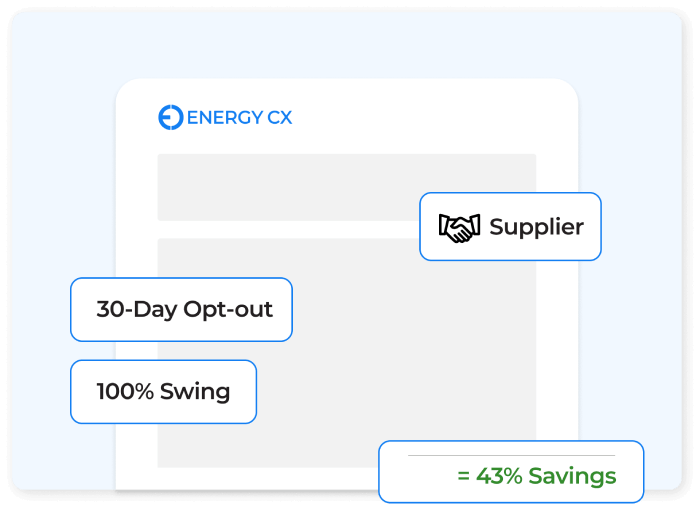Smarter energy purchasing
Custom choices
Buying energy has to be custom—every business and every local market is unique. We start by understanding your specific needs, risk and goals.

National reach, regional expertise
Each state has different energy market conditions—we understand the complexities of every region and tailor
your strategy to align with the local market.

Get expert recommendations
and custom strategies
The market is ever changing and it shouldn’t be your job to know when and how to strategically buy. It’s ours. We’ll recommend a personalized strategy tailored to your specific energy procurement goals.
A flexible contract made just for you
We have close relationships and negotiating power with our suppliers, so we always secure the right price at the right time. We even have flexible contract terms including 30-day opt-out language, 100% swing language, and maximum payment terms.

We were stunned by the savings Energy CX was able to achieve for us, both on the front end but also helping us maximize value on the back end.
FAQ
Questions? We are here to help.
What is energy procurement?
Energy procurement is like shopping for the best deal on the electricity or gas your business needs to run smoothly. It's about finding the right source and price for your energy supply. Learn more about index pricing in our blog!
What is index pricing?
Index pricing is tying the price of your energy to the market. When the market goes up, your energy cost goes up, and when it goes down, your cost goes down. It's a flexible way of pricing energy that can change over time. Checkout our article on index pricing to learn more!
Why shouldn’t I pay the utility rate?
Not paying the utility rate is like shopping around for the best price. You can find better deals elsewhere and save money on your energy bill.
What is a fixed rate?
With a fixed rate for energy, your bill won't change even if the market's price goes up or down. Your energy cost stays the same, like paying a fixed amount for a flight no matter when you go.
What does block and index mean?
You might decide to lock in a fixed rate (block) for some of your energy needs to have cost predictability while also buying energy at the current market rate (index) for other parts of your energy consumption. It's like having a mix of stable-priced and market-priced energy to balance your costs in the energy market.
How common is energy procurement?
It's quite common. Around 73% of medium-sized commercial buildings, 87% of large commercial buildings, and 93.9% of very large commercial buildings actively engage in energy procurement to manage their energy costs and ensure reliable supply.
